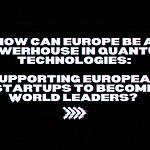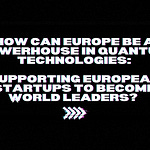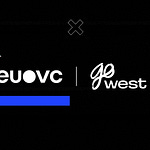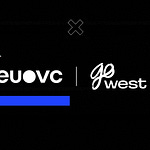Welcome to a new episode of the EUVC podcast, where our good friends Dan Bowyer and Mads Jensen from SuperSeed in a discussion with Andrew J. Scott, Founding Partner at 7percent Ventures, cover recent news and movements in the European tech landscape 💬
Here are the core take-aways:
Tech & VC events to attend this fall
What it is: Tech BBQ and the All-In Summit are excellent examples of events where strategic networking can take place.
Why it matters: The value of preloading meetings at large events like Tech BBQ is increasingly recognized, emphasizing strategic planning over reliance on serendipity. The consensus among leading voices is that while events offer brand reach opportunities, the real deal flow for VCs rarely stems from chance encounters at such gatherings. Instead, the focus should be on targeted, planned interactions that can yield more substantive connections and outcomes.
Mads from Superseed attended the All-In Summit which as many would know not only focused on technological foresight but also ventured into the intricate interplay between technology and politics. Speakers like Elon Musk and Peter Thiel didn’t shy away from expressing their political affiliations, which sparked a broader dialogue about the role of political beliefs in shaping technological and business leadership.
The debate at the summit highlighted a critical tension: the influence of political ideologies on business practices and leadership within the tech industry. This discourse was enriched by diverse viewpoints, emphasizing the need for a tech community that can engage with and tolerate a spectrum of political beliefs without stifling innovation.
The consensus underscored the importance of distinguishing personal political leanings from professional endeavors, especially in fields driven by rapid technological advancement and global implications. This discussion reflects a maturing perspective within the tech community, advocating for a balanced approach where political diversity is seen as an asset rather than a divider.
AlphaProteo - the first AI for designing novels
Why it matters: The introduction of AlphaProteo could profoundly transform the pharmaceutical industry by enhancing drug discovery processes and cancer treatment methods. Its ability to deliver success rates that are 3 to 300 times more effective than existing techniques signifies a substantial leap in medical research capabilities.
However, the transition from laboratory success to practical application presents notable challenges. Ensuring that these newly designed protein binders can be delivered at the correct dosages without compromising safety requires meticulous development and testing. The precision in delivery mechanisms remains a crucial hurdle to overcome.
For European biotech startups and investors, AlphaProteo represents a frontier of opportunity. The ability to leverage such advanced AI technology could set the stage for significant competitive advantages in the market. It invites a wave of potential investments and collaborations aimed at bringing these theoretical advancements into the realm of commercial and clinical use.
The future of European competitiveness
Why it matters: Draghi's analysis comes at a pivotal moment for Europe. He argues that without proactive and unified efforts, Europe stands at risk of falling behind in the global arena. His report calls for enhanced cooperation and substantial investments in innovation, pointing out that Europe’s most prominent scientific hubs currently lie outside of the EU.
Key themes in Draghi's vision include:
Massive Investment Boost - €800bn per year
Better Manage Energy and Decarbonization
Close innovation gap
Reduce dependencies
Fully implement the single market
Skills and social inclusion
Politico states “The EU is hampered by badly designed financial markets; energy is too expensive; R&D is haphazard and split among many different countries; its increasingly polarised politics makes agreement on anything as frustrating and as painful as pulling teeth”
This gap in competitiveness extends beyond economic implications—it directly affects Europe's ability to tackle critical issues like climate change, infrastructure development, and social welfare. For venture capitalists and entrepreneurs, the report underscores the urgency of fostering deeper collaboration between the EU and the UK. By integrating their respective strengths, there's a compelling opportunity to forge a more cohesive and powerful innovation ecosystem across Europe.
UK needs £1 trillion in the next decade
Why it matters: This financial imperative signals a crucial juncture for the UK government, highlighting the need to prioritize innovation and infrastructure development in its long-term strategy. Implementing stricter regulations in sectors like automotive emissions could catalyze the growth of the UK's green technology sector, positioning it as a global leader in sustainability.
For VCs, the shifting governmental focus presents ripe opportunities in sectors primed for transformation. Investments in green technology, infrastructure upgrades, and biotechnological advancements are expected to be particularly lucrative. These areas not only promise substantial returns but also align with global trends towards sustainability and technological integration in healthcare and public services.
EU fines on big tech & European repercussions
Why it matters: These fines reflect the EU's commitment to a rigorous regulatory framework designed to maintain fair competition and protect consumer data. This environment offers a unique competitive advantage to European tech firms, presenting them with the opportunity to challenge established tech giants. The increased regulation fosters an atmosphere ripe for innovation by leveling the playing field.
However, the heightened regulatory scrutiny could also temper the pace of innovation, as big tech companies may become more cautious in their European operations. This could lead to reduced collaboration opportunities with European startups, potentially stalling the dynamic interplay that often drives technological advancement.
For investors, these developments underscore the importance of a strategic approach to the European tech landscape. Navigating this terrain requires a keen understanding of regulatory trends and their potential impacts on both established players and emerging innovators. There is a significant opportunity for those who can effectively balance the regulatory risks against the prospects for pioneering disruptions in the market.
Klarna is shutting down SaaS vendors
Why it matters: Klarna's CEO, Sebastian Siemiatkowski, has identified AI as a pivotal tool for enhancing operational efficiency. By transitioning to AI-driven workflows, Klarna aims to increase revenue per employee by 75% while cutting marketing expenses by 25%. This strategic shift underscores a larger trend where major enterprises are increasingly favoring customized, AI-enhanced processes over traditional SaaS tools.
This move could signal a decrease in demand for standard SaaS offerings, particularly among tech-forward companies that see the value in bespoke AI solutions. For investors, this trend demands close attention as it has the potential to significantly alter the valuation landscape for SaaS providers. Companies that can adapt and offer more agile, AI-integrated solutions may find new growth avenues.
Conversely, this evolving market could result in a bifurcation, where smaller or less technologically adept companies continue to rely on traditional SaaS products. This creates a nuanced investment landscape, with opportunities to support both innovative AI-driven firms and established SaaS providers that cater to a different segment of the market.
Some things are made for platforms - music, cabs & pizzas. But fund solutions aren’t one of them. Their individual client focus and regulation-first approach is your guarantee for flexible solutions accommodative to a broad range of deal and client specifics. The kicker? Prices that match any of the shelf-products in the market.
Upcoming Comprehensive Portfolio Modelling Masterclass in London with Marc Penkala
📅 24th October ⏰ 10:00 AM - 1:00 PM BST at Isomer Capital | 👨👩👧👦 Only 15 seats
This exclusive in-person masterclass integrates three key aspects of Venture Capital Fund Modelling: Fundamentals, Assumptions Sheet Construction and Portfolio Construction & Decomposition.
Led by Marc Penkala, Co-Founding Partner of āltitude and advisor to multiple European Family offices and VCs, this masterclass will be delivered in a small-group setting with just 15 seats available, providing rich opportunity to discuss, exchange perspectives and do hands-on work with the provided material and resources.
Tailored to emerging GPs and established fund managers, as well as family offices and senior CVC employees, the masterclass will cover:
Fund Modelling Fundamentals - Begin with a thorough introduction to the core elements of VC fund modelling, including fund structure, capital allocation, and the impact of management fees and carried interest on fund economics.
Assumptions Sheet Construction - Engage in a practical, hands-on session where you will learn to build and refine an assumptions sheet. This part of the workshop focuses on how these assumptions drive the fund’s performance and the strategic decision-making process.
Portfolio Construction and Decomposition - Delve deeper into strategic fund composition, exploring techniques for initial portfolio setup, follow-on investment strategies, and the intricate process of decomposing investments to assess and enhance fund performance.
Want to unlock the community ticket? Join here 💖
🧠 Upcoming advanced EUVC masterclasses
Advanced small-group sessions that take you from good to great. Lectured by leading GPs, LPs & Experts.
VC Portfolio Management: Capital Deployment and Reserve Planning
📅 Tue, September 24 | 4:00 PM - 6:00 PM CET | Lecturer: Anubhav Srivastava, Tactyc
Venture Debt: Structuring & Deal Terms
📅 Tue, October 8 | 11:00 AM - 1:00 PM CET | Lecturer: Hemal Fraser‑Rawal, General Partner at White Star Capital
Benchmarking Session for GPs & LPs
📅 TBD - preregistration open now | Lecturer: To be announced 🤫
Got ideas or requests for future topics to cover? Let us know here.
🗓️ The VC Conferences You Can’t Miss
There are some events that just have to be on the calendar. Here’s our list, hit us up if you’re going, we’d love to meet!
How to Web | 📆 2-3 October | 🌍 Bucharest, Romania
WVC:E Summit 2024 | 📆 7-8 October | 🌍 Paris, France
North Star & GITEX Global | 📆 14 - 18 October | 🌍 Dubai, UAE
Invest in Bravery | 📆 21th of October | 🌍 Kyiv, Ukraine
0100 Conference Mediterranean | 📆 28 - 30 October | Milano, Italy
GoWest | 📆 28 - 30 January 2025 | 🌍 Gothenburg, Sweden
GITEX Europe 2025 | 📆 23 - 25 May 2025 | 🌍 Berlin, Germany












